#Tobias Jørgensen
Explore tagged Tumblr posts
Text
Danske Digitale Medier A/S får ny bestyrelse
Danske Digitale Medier A/S får ny bestyrelse
På generalforsamlingen den 15. december 2022 blev en ny bestyrelse valgt, der fremadrettet skal sikre, at Danske Digitale Medier A/S fortsætter udviklingen af avisen.nu, fredericiaavisen.dk, middelfartavisen.dk, koldingavisen.dk, odenseavisen.dk, , vejleavisen.dk, jyllandsavisen.dk, kanal3.dk og politika.dk. Medierne spiller en større rolle end nogensinde før. I en tid, hvor mediebilledet er…
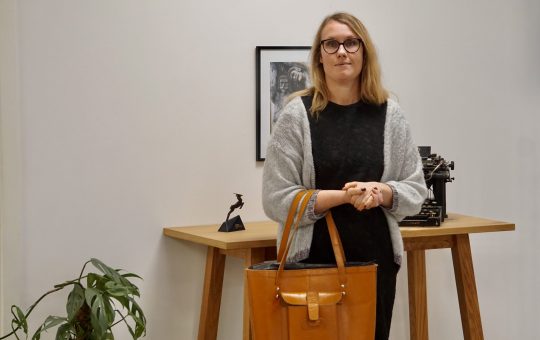
View On WordPress
#01#Danske Digitale Medier A/S#John Nyborg#Kamilla Mannemar Rasmussen#Susanne Eilersen#Tobias Jørgensen#Tommy Rachlitz Nielsen
0 notes
Text
2024 olympics Denmark roster
Archery
Kirstine Danstrup-Andersen (Copenhagen)
Athletics
Simon Hansen (Herning)
Ida Karstoft (Lemvig)
Lisa Pedersen (Copenhagen)
Katrine Koch-Jacobsen (Ballerup)
Badminton
Viktor Axelsen (Odense)
Anders Antonsen (Aarhus)
Kimmo Astrup-Sørensen (Copenhagen)
Anders Skaarup-Rasmussen (Copenhagen)
Mathias Christiansen (Copenhagen)
Mia Blichfeldt (Solrød Strand)
Maiken Fruergaard-Sørensen (Hvidovre)
Sara Thygesen (Frederiksberg)
Alexandra Bøje (Copenhagen)
Boxing
Nikolai Terteryan (Vejle)
Canoeing
Lasse Madsen (Solrød Kommune)
Victor Aasmul (Rudersdal Kommune)
Morten Gravesen (Copenhagen)
Magnus Sibbersen (Hvidovre)
René Holten-Poulsen (Sakskøbing)
Frederikke Hauge-Matthiesen (Høje-Taalstrup Kommune)
Emma Aastrand-Jørgensen (Bagsværd)
Cycling
Mikkel Norsgaard-Bjerg (Copenhagen)
Michael Mørkøv-Christensen (Kokkedal)
Mads Pedersen (Tølløse)
Mattias Skjelmose-Jensen (Copenhagen)
Carl-Frederik Bévort (Copenhagen)
Tobias Aagaard-Hansen (Odense)
Niklas Larsen (Slagelse)
Rasmus Lund-Pedersen (Odense)
Simon Andreassen (Odense)
Sofie Pedersen (Aalborg)
Rebecca Koerner (Herlev)
Cecilie Uttrup-Ludwig (Frederiksberg Kommune)
Emma Bjerg (Silkeborg)
Amalie Dideriksen (Kastrup)
Julie Norman-Leth (Aarhus)
Caroline Bohé (Hillerød)
Malene Kejlstrup-Sørenson (Randers)
Equestrian
Daniel Bachmann-Andersen (Sønderborg)
Peter Tersgov-Flarup (Viborg)
Andreas Schou (Kolding)
Nanna Skodborg-Merrald (Kirke Hvalsø)
Cathrine Landrup-Dufour (Kirke Hvalsø)
Golf
Nicolai Højgaard (Aarhus)
Jacob Olesen (Dubai, U.A.E.)
Emily Pedersen (Copenhagen)
Nanna Koerstz-Madsen (Nørrebro)
Handball
Niklas Landin-Jacobsen (Gladsaxe Kommune)
Magnus Landin-Jacobsen (Gladsaxe Kommune)
Niclas Vest-Kirkeløkke (Ringe)
Emil Manfeldt-Jakobsen (Kerteminde)
Rasmus Lauge-Schmidt (Randers)
Emil Nielsen (Aarhus)
Magnus Saugstrup-Jensen (Aalborg)
Hans Lindberg (Høje-Taastrup Kommune)
Mathias Gidsel (Skjern)
Henrik Møllgaard-Jensen (Bramming)
Mikkel Hansen (Helsingør)
Lukas Lindhard-Jørgensen (Lejre)
Lasse Bredekjær-Andersson (Copenhagen)
Simon Hald-Jensen (Aalborg)
Thomas Sommer-Arnoldsen (Skanderborg)
Simon Bogetoft-Pytlick (Thurø)
Sandra Toft (Gribskov Kommune)
Sarah Aaberg-Iversen (Nykøbing Falster)
Rikke Iversen (Nykøbing Falster)
Helena Hagesøe-Elver (Copenhagen)
Anne Hansen (Glostrup)
Kathrine Brothmann-Heindahl (Rudersdal)
Line Haugsted (Skive)
Althea Reinhardt (Aarhus)
Mette Tranborg (Aarhus)
Kristina Jørgensen (Horsens)
Trine Østergaard-Jensen (Skanderborg)
Louise Vinter-Burgaard (Esbjerg)
Mie Enggrob-Højlund (Voldum)
Emma Uhrskov-Friis (Herning)
Michala Elsberg-Møller (Aalborg)
Judo
Lærke Olsen (Hørsholm)
Rowing
Sverri Sandberg-Nielsen (Tórshavn, Faroe Islands)
Marie Hauberg-Johannesen (Solrød Kommune)
Julie Poulsen (Odder)
Astrid Steensberg (Sorø)
Clara Hornæss (Copenhagen)
Sára Johansen (Tvøroyri, Faroe Islands)
Nikoline Laidlaw (Dunblane, U.K.)
Karen Mortensen (Fredericia)
Caroline Munch (Bjæverskov)
Nanna Vigild (Copenhagen)
Sofie Vikkelsøe (Copenhagen)
Frida Werner-Foldager (Roskilde)
Sofie Østergaard (London, U.K.)
Hedvig Rasmussen (Frederiksberg)
Fie Udby-Erichsen (Hobro)
Frida Sanggaard-Nielsen (Copenhagen)
Sailing
Johan Søe (Aarhus)
Johan Lundgaard-Schubert (Aarhus)
Nikolaj Hoffmann-Buhl (Lyngby-Taarbæk Kommune)
Daniel Nyborg (Copenhagen)
Mathias Bruun-Borreskov (Skanderborg)
Andrea Schmidt (Aarhus)
Johanne Schmidt (Aarhus)
Natacha Saouma-Pedersen (Odense)
Anne-Marie Rindom (Søllerød)
Shooting
Jesper Hansen (Bjegsted)
Rikke Mæng-Ibsen (Herning)
Stephanie Scurrah-Grundsøe (Roskilde)
Skateboarding
Viktor Solmunde (Copenhagen)
Swimming
Thea Blomsterberg (Birkerød)
Martine Damborg (Kastrup)
Elisabeth Sabroe-Ebbesen (Skanderborg)
Schastine Tabor (Copenhagen)
Julie Kepp-Jensen (Hvidovre)
Helena Rosendahl-Bach (Holstebro)
Signe Bro (Copenhagen)
Table tennis
Anders Lind (Hørsholm)
Martin Buch-Andersen (Rudersdal Kommune)
Jonathan Kjaer-Groth (Albertslund)
Taekwondo
Edi Hrnic (Brøndby Kommune)
Tennis
Clara Tauson (Kongens Lyngby)
Caroline Wozniacki-Lee (Miami-Dade County, Florida)
Triathlon
Emil Holm (Frederiksberg)
Alberte Kjær-Pedersen (Aarhus)
Wrestling
Turpal-Ali Bisultanov (Copenhagen)
#Sports#National Teams#Denmark#Celebrities#Races#Fights#Boxing#Animals#Golf#U.A.E.#Boats#U.K.#Tennis#Florida
2 notes
·
View notes
Text
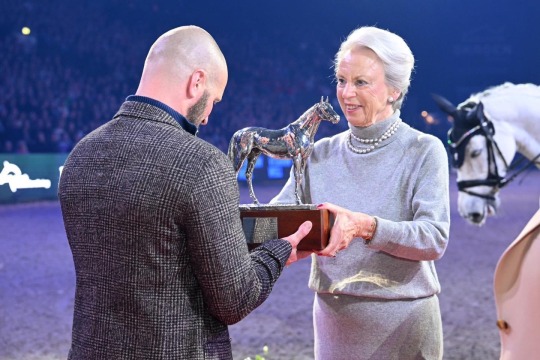
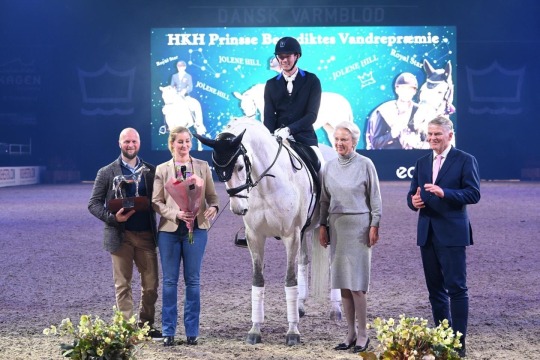
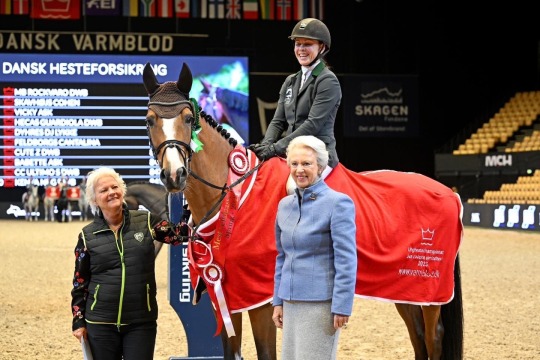
📷 Det Danske Kongehus
🇩🇰 Princess Benedikte of Denmark
“This weekend, MCH Fair Center Herning stood in the sign of equestrian sports with Danish Warmblods Stallion. Her Royal Highness Princess Benedikte observed as patron both gala show, stallion ceremony and the international jumping and dressage competitions.
The princess presented several awards among other things "H.K.H. Princess Benediktes Walking Prize" to the mare Jolene Hill, which is bred by Hanne Andreasen and owned by Signe and Thomas Kirk Kristiansen. On a daily basis, sky rider Tobias Thorning Jørgensen is partner with Jolene Hill, and together they won Olympic gold at the Paralympic Games in Tokyo 2021.”
2 notes
·
View notes
Video
vimeo
Unridden - Go Where You Feel Most Alive from Ian Isak on Vimeo.
ABOUT
Unridden is a Nordic cold water brand founded in Copenhagen, Denmark. Emerging from the frigid, dark waters, Unridden is all about exploring the raw and unpredictable nature that surrounds us as a means to finding genuine happiness within ourselves. Unridden wants to inspire and dress people to go outside and explore. People spend most of their time indoors in front of screens. Unridden wants to change that. And encourage people to explore the outdoors. To go where you feel most alive.
CREDITS
Director & Writer — Ian Isak Production Company — Honeytrap Film Co-Director — Jonas Blond Executive Producer — Malene Dyhring Producer — Sarah Hjorth Wahlgren Director of Photography — Jacob Møller 1st AC — Jonas Blond Underwater Cinematographer — Martin La Cour Drone Operator — Jakob Jørgensen Props master — Eva Kristine Lendorph Production Assistant — Stinna Nagel Secondary Copywriter — Johan Køhler Creative Director — Asger Juel Larsen, Unridden Creative Director Assistant — Calle Branca Andersson, Unridden Editor — Anders Jon Colorist — Mikael Balle Music Composer — Simon Littauer Sound Design — Samuel Lehn, Supersonic CPH Visual Effects — Larsen VFX
FEATURING
Ragnar Hentze Jouni Kelkka Oliver Hartkopp Andras Brixen Jóni Brandsson Christiansen Øssur Debes Eiriksfoss Markus Kötlum William Nolsøe Tóki Janusarson Strøm Ári Jakobsen Danial W. Johannesen Jóhanna Óladottir Joensen Fia Haldursdóttir Smith Anja Petursdóttir Petersen Marita Káradóttir Petersen Jonna Maria Hansen Rúna Kyster Gærdbo Ró Reginsdóttir Lilja Súnadóttir Andreassen Daniel Mierzwinski Kevin K. Yuven Villads Tyrrestrup Øster Tobias Laust Hansen Luna Hjelmen D. Lundgren Josefine Kjær Julie Amalie Svensson
THANKS
Simon Bonde Katrin Alis W. Bærentsen Faroe Island Surf Guide ArtOfficial Agency Arlette Walsøe Lasse Vejby, 1st Unit Morten Kildegaard, Gaffers Christian Pedersen, MAAN Rental Laura Preuthun Bogi Krossteig Shiva Coley Søs Tørstersen Faroe Island Surf Guide ArtOfficial Agency
2021
3 notes
·
View notes
Video
vimeo
ABOUT Unridden is a Nordic cold water brand founded in Copenhagen, Denmark. Emerging from the frigid, dark waters, Unridden is all about exploring the raw and unpredictable nature that surrounds us as a means to finding genuine happiness within ourselves. Unridden wants to inspire and dress people to go outside and explore. People spend most of their time indoors in front of screens. Unridden wants to change that. And encourage people to explore the outdoors. To go where you feel most alive. CREDITS Director & Writer — Ian Isak Production Company — Honeytrap Film Co-Director — Jonas Blond Executive Producer — Malene Dyhring Producer — Sarah Hjorth Wahlgren Director of Photography — Jacob Møller 1st AC — Jonas Blond Underwater Cinematographer — Martin La Cour Drone Operator — Jakob Jørgensen Props master — Eva Kristine Lendorph Production Assistant — Stinna Nagel Secondary Copywriter — Johan Køhler Creative Director — Asger Juel Larsen, Unridden Creative Director Assistant — Calle Branca Andersson, Unridden Editor — Anders Jon Colorist — Mikael Balle Music Composer — Simon Littauer Sound Design — Samuel Lehn, Supersonic CPH Visual Effects — Larsen VFX FEATURING Ragnar Hentze Jouni Kelkka Oliver Hartkopp Andras Brixen Jóni Brandsson Christiansen Øssur Debes Eiriksfoss Markus Kötlum William Nolsøe Tóki Janusarson Strøm Ári Jakobsen Danial W. Johannesen Jóhanna Óladottir Joensen Fia Haldursdóttir Smith Anja Petursdóttir Petersen Marita Káradóttir Petersen Jonna Maria Hansen Rúna Kyster Gærdbo Ró Reginsdóttir Lilja Súnadóttir Andreassen Daniel Mierzwinski Kevin K. Yuven Villads Tyrrestrup Øster Tobias Laust Hansen Luna Hjelmen D. Lundgren Josefine Kjær Julie Amalie Svensson THANKS Simon Bonde Katrin Alis W. Bærentsen Faroe Island Surf Guide ArtOfficial Agency Arlette Walsøe Lasse Vejby, 1st Unit Morten Kildegaard, Gaffers Christian Pedersen, MAAN Rental Laura Preuthun Bogi Krossteig Shiva Coley Søs Tørstersen Faroe Island Surf Guide ArtOfficial Agency 2021
1 note
·
View note
Video
vimeo
Danish Road Safety Council from Kasper Wind, DFF on Vimeo.
Director: Tore Frandsen Dop: Kasper Wind EP: Sara Samsøe Production: Lasse Bugge & Janni Thomsen B-Camera: Magnus Eidemark Light: Tobias Juul AD: Stefan Danholm Costume: Dagmar Stefflova Production Designer: Mads Jørgensen Makeup: Louise Bruun Casting: Saskia Fahlsten Post: Copenhagen VFX Edit: Jacob Schulsinger Sound design: Kevin Koch Color: Mikael Balle Music: Jonas Larsen Production company: New Land CPH Agency: &Co
Shot on Super16 Kodak Stock 5207 & 5219
0 notes
Video
vimeo
Danish Road Safety Council from Kasper Wind, DFF on Vimeo.
Agency: &Co Production company: New Land CPH
Director: Tore Frandsen Dop: Kasper Wind EP: Sara Samsøe Production: Lasse Bugge & Janni Thomsen B-Camera: Magnus Eidemark Light: Tobias Juul AD: Stefan Danholm Costume: Dagmar Stefflova Production Designer: Mads Jørgensen Makeup: Louise Bruun Casting: Saskia Fahlsten Post: Copenhagen VFX Edit: Jacob Schulsinger Sound design: Kevin Koch Color: Mikael Balle Music: Jonas Larsen
1 note
·
View note
Video
tumblr
ABOUT Unridden is a Nordic cold water brand founded in Copenhagen, Denmark. Emerging from the frigid, dark waters, Unridden is all about exploring the raw and unpredictable nature that surrounds us as a means to finding genuine happiness within ourselves. Unridden wants to inspire and dress people to go outside and explore. People spend most of their time indoors in front of screens. Unridden wants to change that. And encourage people to explore the outdoors. To go where you feel most alive. CREDITS Director & Writer — Ian Isak Production Company — Honeytrap Film Co-Director — Jonas Blond Executive Producer — Malene Dyhring Producer — Sarah Hjorth Wahlgren Director of Photography — Jacob Møller 1st AC — Jonas Blond Underwater Cinematographer — Martin La Cour Drone Operator — Jakob Jørgensen Props master — Eva Kristine Lendorph Production Assistant — Stinna Nagel Secondary Copywriter — Johan Køhler Creative Director — Asger Juel Larsen, Unridden Creative Director Assistant — Calle Branca Andersson, Unridden Editor — Anders Jon Colorist — Mikael Balle Music Composer — Simon Littauer Sound Design — Samuel Lehn, Supersonic CPH Visual Effects — Larsen VFX FEATURING Ragnar Hentze Jouni Kelkka Oliver Hartkopp Andras Brixen Jóni Brandsson Christiansen Øssur Debes Eiriksfoss Markus Kötlum William Nolsøe Tóki Janusarson Strøm Ári Jakobsen Danial W. Johannesen Jóhanna Óladottir Joensen Fia Haldursdóttir Smith Anja Petursdóttir Petersen Marita Káradóttir Petersen Jonna Maria Hansen Rúna Kyster Gærdbo Ró Reginsdóttir Lilja Súnadóttir Andreassen Daniel Mierzwinski Kevin K. Yuven Villads Tyrrestrup Øster Tobias Laust Hansen Luna Hjelmen D. Lundgren Josefine Kjær Julie Amalie Svensson THANKS Simon Bonde Katrin Alis W. Bærentsen Faroe Island Surf Guide ArtOfficial Agency Arlette Walsøe Lasse Vejby, 1st Unit Morten Kildegaard, Gaffers Christian Pedersen, MAAN Rental Laura Preuthun Bogi Krossteig Shiva Coley Søs Tørstersen Faroe Island Surf Guide ArtOfficial Agency 2021
0 notes
Text
Venstre turnerer rundt på valgsteder
Venstre turnerer rundt på valgsteder
Venstres ordfører i Fredericia Byråd, Peder Tind, og Venstres kandidat Tobias Jørgensen, har tirsdag eftermiddag turneret rundt på valgstederne i Fredericia. Klokken 15:00 troppede de op i Fredericia Idrætscenter, hvor Peder Tind skulle hen og stemme. Han har tidligere slået klart og tydeligt fast, at han stemte på Tobias Jørgensen. Med sig hen til stemmestedet havde Peders konen Anitha og…
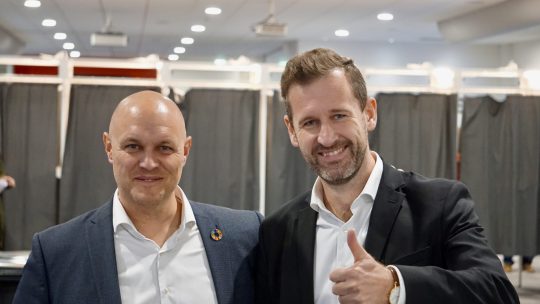
View On WordPress
0 notes
Text
2020 Olympics Denmark Roster
Archery
Maja Buskbjerg-Jager (Nørre Broby)
Athletics
Thijs Nijhuis (Copenhagen)
Abdi-Hakin Ulad (Skælskør)
Ole Hesselbjerg (Charlottenlund)
Kojo Musah (Aarhus)
Simon Hansen (Herning)
Tazana Dyrbak-Kamanga (Nairobi, Kenya)
Frederik Schou-Nielsen (Copenhagen)
Anna Møller (Copenhagen)
Sara Slott-Petersen (Nykøbing Falster)
Emma Bomme-Beiter (Copenhagen)
Astrid Glenner-Frandsen (Copenhagen)
Ida Karstoft (Copenhagen)
Mathilde Kramer (Copenhagen)
Rowing
Sverri Sandberg-Nielsen (Tórshavn)
Joachim Sutton (Roskilde)
Frederic Vystavel (Copenhagen)
Ida Gørtz Jacobsen (Copenhagen)
Christina Juhl-Johansen (Tommerup Stationsby)
Fie Udby-Erichsen (Hobro)
Hedvig Rasmussen (Fredriksberg)
Frida Sanggaard-Nielsen (Copenhagen)
Trine Dahl-Pedersen (Copenhagen)
Sailing
Jakob Precht-Jensen (Aarhus)
Jonas Warrer (Aarhus)
Christian Lübeck (Lyngby)
Ida Baad-Nielsen (Aarhus)
Marie Olsen (Aarhus)
Lin Cenholt (Aarhus)
Lærke Buhl-Hansen (Copenhagen)
Anne-Marie Rindom (Søllerød)
Shooting
Jesper Hansen (Bjergsted)
Steffen Olsen (Aarhus)
Rikke Ibsen (Herning)
Anna Nielsen (Funen)
Table Tennis
Jonathan Groth (Copenhagen)
Wrestling
Fredrik Bjerrehuus (Herning)
Badminton
Anders Antonsen (Aarhus)
Viktor Axelsen (Dubai, U.A.E.)
Kim Astrup-Sørensen (Copenhagen)
Anders Rasmussen (Copenhagen)
Mia Blichfeldt (Solrød Strand)
Maiken Fruergaard-Sørensen (Hvidovre)
Sara Thygesen (Frederiksberg)
Mathias Christiansen (Copenhagen)
Alexandra Bøje (Copenhagen)
Canoeing
Sara Milthers (Copenhagen)
Julie Frølund-Funch (Copenhagen)
Bolette Iversen (Copenhagen)
Emma Jørgensen (Bursø)
Cycling
Kasper Asgreen (Kolding)
Jakob Fuglsang (Geneva, Switzerland)
Christopher Juul-Jensen (Kilmacanogue, Ireland)
Michael Valgren-Hundahl (Østerild)
Niklas Larsen (Slagelse)
Lasse Hansen (Faaborg)
Rasmus Pedersen (Odense)
Frederik Rodenberg-Madsen (Værløse)
Michael Mørkøv-Christensen (Kokkedal)
Sebastian Fini-Carstensen (Hellerup)
Emma Norsgaard-Jørgensen (Silkeborg)
Cecilie Uttrup-Ludwig (Fredriksberg)
Amalie Dideriksen (Kastrup)
Julie Leth (Aarhus)
Caroline Bohé (Hillerød)
Malene Degn (Copenhagen)
Simone Christensen (Aaarhus)
Equestrian
Peter Flarup (Søndre)
Andreas Schou (Kolding)
Cathrine Dufour (Hvalsø)
Carina Cassøe-Krüth (Hobro)
Nanna Skodborg-Merrald (Hvalsø)
Golf
Rasmus Højgaard (Billund)
Joachim B. Hansen (Hørsholm)
Nanna Madsen (Copenhagen)
Emily Pedersen (Copenhagen)
Handball
Niklas Landin-Jacobsen (Søborg)
Magnus Landin-Jacobsen (Søborg)
Emil Jakobsen (Kerteminde)
Magnus Saugstrup-Jensen (Aalborg)
Lasse Svan-Hansen (Lille Heddinge)
Kevin Møller (Tønder)
Henrik Møllgaard-Jensen (Bramming)
Mads Mensah-Larsen (Holbæk)
Henrik Toft-Hansen (Skive)
Mikkel Hansen (Helsingør)
Morten Olsen (Osted)
Jóhan Hansen (Tórshavn, Faroe Øer)
Lasse Andersson (Copenhagen)
Jacob Holm (Esbjerg)
Mathias Gidsel (Skjern)
Judo
Lærke Olsen (Hørsholm)
Skateboarding
Rune Glifberg (Copenhagen)
Swimming
Tobias Bjerg (Bagsvaerd)
Anton Ipsen (Birkerod)
Alexander Nørgaard (Birkerod)
Helena Bach (Holstrebo)
Emilie Beckmann (Tune)
Pernille Blume (Herlev)
Signe Bro (Ballerup)
Julie Jensen (Hvidovre)
Jeannette Ottesen (Kongens Lyngby)
Clara Rybak-Andersen (Charlottenlund)
Karoline Sørensen (Copenhagen)
0 notes
Text
Developing Methods to Address the Platform Economy: The Politics of Shopify and Ecommerce
This is a shortened version of the SSHRC postdoc application I completed and submitted last week. Big shout out to David Neiborg who helped me with this. Even if I don’t receive the award, this broadly outlines the direction of my research. I’m going to keep publishing and working in and around game studies, but I also want to pivot a bit and dip into new topics related to Canada’s burgeoning tech economy.
Background and context
This proposed post-doctoral research examines a series of case studies on Shopify, an Ottawa-based e-commerce company whose spectacular growth over the past decade has continuously impressed the Canadian business community (Silcoff, 2017). Shopify provides the online platform which small to medium sized merchants (both brick and mortar as well as online) use to process sales and payments. In 2013, Shopify was the first Canadian “startup” to reach a one billion-dollar valuation (Silcoff, 2013). A year later, The Globe and Mail named Shopify’s CEO, Tobias Lütke, “Our Canadian CEO of the year you’ve probably never heard of” (Cole, 2014). By 2017, this valuation had jumped to 10-billion (Silcoff, 2017). This study will document Shopify’s spectacular growth in terms of revenue, customers, and what can be perceived as its growing dominance (with 500,000 businesses reportedly using the service) in digital commerce (Shopify, 2017). In other words, why has Shopify grown so much, so fast, and received the support of both private and public groups? How does Shopify work as a platform, and how it is changing how Canadians labour and produce value? Finally, I ask what Shopify signals more broadly for the future of communication on and around the internet.
In addition to producing original research on Shopify as a distinct platform, while highlighting its relevance to communication, media, and cultural studies, I will develop and refine new quantitative and qualitative methodological approaches that address the specific particularities of platforms and “software as service”. I will build on the work of methodologies explored by Langlois & Elmer (2013), José Van Dijck & Nieborg, (2009), and Fenwick McKelvey (2011). My own contributions to this area include my doctoral dissertation on the political economy of Steam (a digital distribution platform for video games), a comprehensive analysis of the internet as a spatial fix for the circulation of capital (Greene & Joseph, 2015), and an analysis of how online communities were dispossessed of their hobbies by platforms, and how they resist that dispossession (Joseph, forthcoming). My research expands on established empirical methods like discourse analysis (Jørgensen & Phillips, 2002), document analysis (Bowen, 2009), and thick description (Ponterotto, 2006). Importantly, Shopify has not yet been the subject of critical scholarly inquiry in media and communication studies. This project and its series of case studies intend to address this gap and provide perspective on a rapidly growing business and its place in the Canadian economy.
As one of Canada’s most successful “startups”, Shopify began in 2004 by selling snowboards online, while simultaneously developing the tools (interface and point-of-sale software) that would become the mainstay of its business. Shopify rhetorically positions itself as “making commerce better for everyone” by both providing what they argue are accessible tools, and by increasing the speed at which commerce can take place (Newton, 2016; Shopify, 2015). In other words, Shopify wants to build the technology that will have a hand in the process of “spatialization”, the abolishing of time and space as limits to the circulation of capital (Mosco, 2009). While much of Canada’s digital economy is dependent on monopolies headquartered in the United States, Shopify seems to be Canada’s success story, and its own monopoly-in-waiting. As such, analyzing Shopify’s ascendance is relevant for policy makers and businesses, and serves as a case study of what the future of the Canadian economy might look like.
Shopify’s business model also has serious implications for democracy and politics at a worldwide scale. In October 2016, Breitbart News Network, a far-right political website with close ties to the white supremacist “alt right” movement as well as the Trump presidential campaign, opened an online store to sell branded merchandise. This store was made possible with tools provided to them by Shopify. On February 2, 2017 it came to light that behind the scenes at Shopify, numerous employees were “quietly urging” management to end their business relationship with Breitbart (Daro, 2017). Six days later, Shopify’s CEO, Tobias Lütke, published a defense of Shopify’s official stance to continue supplying ecommerce tools for Breitbart. Lütke stated that: “products are speech and we are pro free speech. This means protecting the right of organizations to use our platform even if they are unpopular or if we disagree with their premise,” (Lütke, 2017). Shopify found itself in conflict: employees and critics pointed out that by providing tools for Breitbart, they were “endorsing hate”. Yet according to Lütke’s professed fidelity to classical liberalism, a private company had no right to restrict speech — in this case, the buying and selling of products — of others. This public relations crisis surrounding Spotify and Breitbart is just one example of the increasing conflicts that are made apparent by the growth and increasing monopolistic status of digital platforms in the world of ecommerce (Srnicek, 2017).
Digital platforms such as Shopify act as intermediaries that offer governance frameworks and facilitate business interactions (Evans & Schmalensee, 2016). However, those who own them discursively frame their operations as neutral, while in practice they have the power to restrict the flow of products and speech (Jørgensen, 2017; Langlois & Elmer, 2013; Napoli & Caplan, 2017; Van Dijck, 2013). In other words, these platforms often have more direct power over speech and commerce than the states whose rules they profess to follow, and exercise this power when it is convenient to them, and within what they consider ideologically consistent with their corporate, or in the case of key executives, their personal values (Dror, 2015; Hoffmann, Proferes, & Zimmer, 2016). Research on the future of platforms like Shopify must take into account that these governance frameworks will frequently be confronted with a broad set of discursive, legal and economic contradictions.
Related Literature
This project builds from my dissertation, “Distributing Productive Play: A Materialist Analysis of Steam” (Joseph, 2017). In it, I foregrounded how platforms are distributed technical systems that have human values built into them, and in the process, produce new (as well as reinforce existing) social hierarchies. This work is in line with existing research in platform studies, software studies, and political economy (Helmond, 2015; Langlois & Elmer, 2013; Montfort & Bogost 2009). This body of work has, in its own way, addressed the ongoing process of monopolization, control, and centralization at the heart of the digital economy. I chose to study Steam because it is the world’s largest distributor of games on the PC, and it hosts a variety of features (marketplaces, forums, content databases) that make it a site to investigate platform power, politics, and tension among consumers, producers, distributors, and workers.
My research is firmly located within the tradition of platform studies research in communication and cultural studies — what Canadian scholars Ganaele Langlois & Greg Elmer (2013) break down into three major approaches. The first comes from critical political economy, which addressed concepts like “immaterial labour” (Hardt & Negri, 2001), “semiotic capitalism” (Berardi, 2009), “digital labour” (Terranova, 2003), and “cognitive capitalism” (Moulier-Boutang, 2012). The second tradition came out of critical empirical engagement with platforms in software studies, and used methods that practitioners considered to be “native” to the technology (Helmond, 2015; Rogers, 2015). Finally, Langlois & Elmer (2013) argue that the last tradition emerged from media activism and software design, which focused on theorizing and finding concrete solutions to the problems that were raised by critical political economy or software studies (Lovink, 2012). Elmer & Langlois (2013) saw that all of these traditions for studying platforms could be productively unified by stressing that each focused on different moments in the production of communication and culture.
The study of platforms involves a host of political and methodological challenges. Platforms are driven by corporate, profit-seeking logics, which set distinct limits on what researchers can hope to understand and know about the platforms they study. Elmer and Langlois (2013) argue that critical social media research must always contextualize the degree to which platforms are enmeshed with these logics. They argue that “Corporate social media platforms obfuscate: their logic goes against critical approaches at many levels… (p. 8)”. The data that these platforms produce is far from objective; instead it merely records “corporate and participatory logic” (p. 10-11). As such, the researcher of a social media platform must move forward asking this: “how can we unpack the different articulations of corporate and participatory logics by examining what is available to the researcher with limited access to corporate social media data and to the social media algorithms that organize life online?” (p. 14) This is the tradition of research in which I position this proposed study.
This research also theoretically addresses some of the most important dynamics at the heart of a critical analysis of capitalism. In the decade since the crash of 2008, and the subsequent Great Recession, many of the core theoretical arguments in Marx’s (1867) Capital vol. 1 have garnered serious attention in both the public and in communication studies (Fuchs, 2012a; 2012b). One of those is the dialectical relationship between concentration/monopoly, and competition. I want to continue to test and theoretically challenge the core principles of critical political economy by making an empirical contribution via my investigation of Shopify, and how it conforms to and deviates from these dynamics. Shopify has done an excellent job of creating a monopoly in the midst of a very competitive marketplace; how well will it fair, when profits could easily be squeezed or decline? Will there be a repeat of the dot-com crash of the late 1990s? Is the enthusiasm around Shopify’s business model simply a repetition of the rhetoric of the “digital sublime”? (Mosco, 2005) This is important for the future of the Canadian economy, especially if it wants to base its future on tech companies like Shopify, which have yet to post a profit.
Methodology
In addition to producing original research on Shopify — a Canadian business with impressively rapid growth that has received scant scholarly attention to date — I will develop and refine new quantitative and qualitative methodologies to address the specific particularities of platforms and “software as service”. To do this, I propose to conduct a series of case studies concerning different “moments” that together make up Shopify.
The first case engages with the platform at the discursive level, analyzing popular representations of the company in the press and by employees and executives (Hoffmann et al., 2016; Jørgensen & Phillips, 2002). Here I am interested in answering the question of how Shopify has been discursively framed and written about in the press that is most read, and presumably, most influential, to Canadian investors. At stake here is also the discursive construction of “platform” in the press, which Tarleton Gillespie (2010) has argued is a political exercise that frames the wider public discourse around these technologies. I will begin by conducting a discourse analysis on media representations in Canada’s major business newspapers, The Globe and Mail, The National Post, and the Toronto Star. I will build a database of stories with significant commentary on Shopify, code each using NVIVO, and analyze them until I reach saturation in terms of themes and discourses (Rogers, 2015). Understanding the discursive positioning of Shopify in the popular media adds to a broader understanding of Shopify’s valuation in the stock market, and the conflicts that arise around the company’s public behaviour.
The second case is located at the level of the platform’s user interface, mobilizing Shaw’s (2017) proposed mixture of Stuart Hall’s (1980) encoding/decoding framework in dialogue with James Gibson’s (1986) affordance theory, which “looks at the encoding/decoding of designed affordances to better account for power, resistance, and interactivity in digital media environments” (p. 2). In other words, I will analyze what Shopify does and does not afford both users (those who shop in digital and brick and mortar stores using Shopify’s services) and subscribers (the customers of Shopify, who use it as an ecommerce business solution). The goal is to “not simply point to how power is operating, but work toward subverting existing hierarchies and finding the hidden affordances of hegemonic processes” (p. 9). From a user perspective, this means finding online stores that use Shopify’s tools, and interacting with them. From the customer side, this will involve semi-structured interviews with small business owners who use Shopify’s tools, possible supervised visits to Shopify’s Ottawa and Toronto offices, and structured experiments with using Shopify’s tools to run a personal store for myself. To do this means subjecting Shopify to a variety of conceptual typologies, and utilizing thick description’s ability to contextualize space and technology (Ponterotto, 2006).
Finally, as a scaffold for the above cases, I will use document analysis (Bowen, 2009) to investigate Shopify’s assets, mergers, partnerships, board members, and revenues. In other words, I will conduct a network analysis using principles from political economy (Mosco, 2009). This analysis will contextualize the company’s growth, strategies, and its place within the Canadian economy to answer how Shopify is both unique (historically) and itself a product of a cycle of concentration, competition, and fragmentation. Moreover, these cases can be addressed by the theoretical toolkits provided by critical political economy, which takes a holistic (and often implicit [Meehan, Mosco, & Wasko, 1993]) qualitative approach to technology and the economy (Hardy, 2014; Mosco, 2009). At the same time, within this framework, there is an undogmatic approach to the specifics of each method, working inductively and re-triangulating as new challenges arise and as conditions and historical moments change (Elmer & Langlois, 2013). In light of this, my goal is to develop and refine existing methods of analysis so they become highly effective tools for the study of “software as service” platforms. This will help move the field beyond the study of social media (Elmer & Langlois, 2013) or hardware consoles (Montfort & Bogost, 2009) toward traditionally “hidden” platforms like Shopify. Bibliography Bowen, G. A. (2009). Document Analysis as a Qualitative Research Method. Qualitative Research Journal, 9(2), 27–40. https://doi.org/10.3316/QRJ0902027 Cole, T. (2014, November 24). Our Canadian CEO of the year you’ve probably never heard of. Retrieved September 14, 2017, from https://www.theglobeandmail.com/report-on-business/rob-magazine/meet-our-ceo-of-the-year/article21734931/ Daro, I. N. (2017, February 2). Shopify Employees Want The Company To Stop Doing Business With Breitbart. Retrieved September 5, 2017, from https://www.buzzfeed.com/ishmaeldaro/shopify-breitbart-store Dror, Y. (2015). ‘We are not here for the money’: Founders’ manifestos. New Media & Society, 17(4), 540–555. https://doi.org/10.1177/1461444813506974 Evans, D. S., & Schmalensee, R. (2016). Matchmakers: The New Economics of Multisided Platforms. Boston, Massachusetts: Harvard Business Review Press. Fraser, L. (2016, April 4). Could Toronto-Waterloo be the next Silicon Valley? Retrieved September 5, 2017, from http://www.cbc.ca/news/canada/kitchener-waterloo/silicon-valley-toronto-waterloo-1.3519032 Fuchs, C. (2012a). Dallas Smythe Today - The Audience Commodity, the Digital Labour Debate, Marxist Political Economy and Critical Theory. Prolegomena to a Digital Labour Theory of Value. TripleC: Communication, Capitalism & Critique. Open Access Journal for a Global Sustainable Information Society, 10(2), 692–740. Fuchs, C. (2012b). With or Without Marx? With or Without Capitalism? A Rejoinder to Adam Arvidsson and Eleanor Colleoni. TripleC (Cognition, Communication, Co-Operation): Open Access Journal for a Global Sustainable Information Society, 10(2), 633–645. Gibson, J. J. (1986). The Ecological Approach to Visual Perception (Classic Edition). New York City: Psychology Press. Gillespie, T. (2010). The politics of ‘platforms.’ New Media & Society, 12(3), 347–364. https://doi.org/10.1177/1461444809342738 Greene, D. M., & Joseph, D. (2015). The Digital Spatial Fix. TripleC: Communication, Capitalism & Critique. Journal for a Global Sustainable Information Society, 13(2), 223–247. Hall, S. (1980). “Encoding/decoding.” In Culture, Media, Language: Working Papers in Cultural Studies, 1972-1979. London: Centre for Contemporary Cultural Studies. Helmond, A. (2015). The Platformization of the Web: Making Web Data Platform Ready. Social Media + Society, 1(2), 2056305115603080. https://doi.org/10.1177/2056305115603080 Hoffmann, A. L., Proferes, N., & Zimmer, M. (2016). “Making the world more open and connected”: Mark Zuckerberg and the discursive construction of Facebook and its users. New Media & Society, 1461444816660784. https://doi.org/10.1177/1461444816660784 Jørgensen, M., & Phillips, L. (2002). Discourse analysis as theory and method. Thousand Oaks, Calif.: Sage Publications. Retrieved from http://myaccess.library.utoronto.ca/login?url=http://SRMO.sagepub.com/view/discourse-analysis-as-theory-and-method/SAGE.xml Jørgensen, R. F. (2017). What Platforms Mean When They Talk About Human Rights. Policy & Internet, 9(3), 280–296. https://doi.org/10.1002/poi3.152 Joseph, D. (forthcoming). The Discourse of Digital Dispossession. Games and Culture, (Ludic Economies). Joseph, D. (2017). Distributing Productive Play: A Materialist Analysis of Steam. Toronto: Ryerson University. Langlois, G., & Elmer, G. (2013). The Research Politics of Social Media Platforms. Culture Machine, 14(0). Retrieved from https://www.culturemachine.net/index.php/cm/article/view/505 Lütke, T. (2017, February 8). In Support of Free Speech. Retrieved September 5, 2017, from https://medium.com/@tobi/in-support-of-free-speech-275d62670203 Marx, K. (1867). Capital: A Critique of Political Economy. (B. Fowkes, Trans.) (Penguin Classics, Vol. One). Penguin Books in association with New Left Review. Meehan, E., Mosco, V., & Wasko, J. (1993). Rethinking Political Economy: Change and Continuity. Journal of Communication, 43(4), 105–116. Montfort, N., & Bogost, I. (2009). Racing the Beam: The Atari Video Computer System. Cambridge, Mass: The MIT Press. Mosco, V. (2005). The Digital Sublime: Myth, Power and Cyberspace (first). The MIT Press. Newton, D. (2016, May 19). Make commerce better for everyone. Retrieved September 13, 2017, from https://ux.shopify.com/make-commerce-better-for-everyone-b96f0621ddf3 Ponterotto, J. G. (2006). Brief Note on the Origins, Evolution, and Meaning of the Qualitative Research Concept “Thick Description.” The Qualitative Report, 11(3), 538–549. Rogers, R. (2015). Digital Methods (Reprint edition). Cambridge, Massachusetts: The MIT Press. Shaw, A. (2017). Encoding and decoding affordances: Stuart hall and interactive media technologies. Media, Culture & Society, 1–11. Shopify. (2015). Page Speed: Are Slow Loading Pages Killing Your Growth? Retrieved September 13, 2017, from https://www.shopify.com/enterprise/60726275-page-speed-are-slow-loading-pages-killing-your-growth Shopify. (2017, August 1). Shopify Now Powers Over 500,000 Businesses in 175 Countries. Retrieved September 13, 2017, from https://www.shopify.com/press/releases/shopify-now-powers-over-500-000-businesses-in-175-countries Silcoff, S. (2013, December 11). A rare startup success story: Shopify hits $1-billion milestone. Retrieved from https://www.theglobeandmail.com/report-on-business/small-business/sb-money/a-rare-startup-success-story-shopify-hits-1-billion-milestone/article15892998/?arc404=true Srnicek, N. (2016). Platform Capitalism (1 edition). Cambridge, UK; Malden, MA: Polity. van Dijck, J. (2013). The Culture of Connectivity: A Critical History of Social Media. Oxford University Press. Van Dijck, J., & Nieborg, D. (2009). Wikinomics and its discontents: a critical analysis of Web 2.0 business manifestos. New Media & Society, 11(5), 855–874. https://doi.org/10.1177/1461444809105356
4 notes
·
View notes
Video
Lemaitre - Machine from IDAP on Vimeo.
Director: Julian Alexander Co-director og Choreography: Quickstyle DoP: Vi Duc Truong
Editor / VFX / Grade : Jens Peder Hertzberg / Go Electra
Producer: Daniel Kragset /Fjernfilm 1st AD: Lars Erik Thoralfsson 2nd AD: Joachim Jørgensen
Focus puller: Øyvind Wilthil 1st AC: Sebastian Louis Storakeren
Gaffer: Daniel C. Vaz Best boy: Lasse Heggen
Grip: Simen Moe Mæhlum Grip: Terje Røkke
Hair og makeup: Hibo Musa Styling: Karen Elieson Illustrator: Julie Aida Graf Costume: Elnaz Gargari Costume: Mahtab Gargari Costume: Gloria Aùma
3D-artist and FX : Mathias Grøteig Robot Mask decor : Terje Vestervik
Stills: Tobias Myklebust Fjeldheim
Dancers: Brage Aarflot Oskar Vigren Emilie Marie Karlsen Maren Grønstad Josephine Gracia Slaaen Ida Marina Gilboe Ella Skorgan Martha Søhr Vivian Pakkanen
Thanks to Storyline Studios, Bob Aas Carho, MovieBird Norway, 3DPrint
0 notes
Video
vimeo
Agency: &Co Production company: New Land CPH Director: Tore Frandsen Dop: Kasper Wind EP: Sara Samsøe Production: Lasse Bugge & Janni Thomsen B-Camera: Magnus Eidemark Light: Tobias Juul AD: Stefan Danholm Costume: Dagmar Stefflova Production Designer: Mads Jørgensen Makeup: Louise Bruun Casting: Saskia Fahlsten Post: Copenhagen VFX Edit: Jacob Schulsinger Sound design: Kevin Koch Color: Mikael Balle Music: Jonas Larsen
0 notes
Video
vimeo
DCN Video Pick: Lemaitre - Machine by IDAP // Director: Julian Alexander Co-director og Choreography: Quickstyle DoP: Vi Duc Truong Editor / VFX / Grade : Jens Peder Hertzberg / Go Electra Producer: Daniel Kragset /Fjernfilm 1st AD: Lars Erik Thoralfsson 2nd AD: Joachim Jørgensen Focus puller: Øyvind Wilthil 1st AC: Sebastian Louis Storakeren Gaffer: Daniel C. Vaz Best boy: Lasse Heggen Grip: Simen Moe Mæhlum Grip: Terje Røkke Hair og makeup: Hibo Musa Styling: Karen Elieson Illustrator: Julie Aida Graf Costume: Elnaz Gargari Costume: Mahtab Gargari Costume: Gloria Aùma 3D-artist and FX : Mathias Grøteig Robot Mask decor : Terje Vestervik Stills: Tobias Myklebust Fjeldheim Dancers: Brage Aarflot Oskar Vigren Emilie Marie Karlsen Maren Grønstad Josephine Gracia Slaaen Ida Marina Gilboe Ella Skorgan Martha Søhr Vivian Pakkanen Thanks to Storyline Studios, Bob Aas Carho, MovieBird Norway, 3DPrint
0 notes
Text
#27 - Bodil Jørgensen

Bodil Jørgensen er skuespillerinde. Du kender hende fra sine roller i film som Idioterne, De Grønne Slagtere samt succes-formater på tv som Rytteriet, Badehotellet og meget, meget andet. I programmet taler vi om hvidvinskuren, de bedste shawarmabarer på Nørrebro, livet efter Uber, “frunch”, oil pulling, beværtninger på Bakken, Olivers sundhedstrip, emojis, dobbeltdyner og New Balance-gummisko. Vi optog programmet på Tobias Kippenbergers fødselsdag. Vi velsignede ham med et high-end duftlys.
iTunes / RSS / Direct mp3
0 notes
Text
Tind: Vil betyde meget hvis en Fredericia-kandidat vælges
Venstres politiske ordfører i Fredericia, Peder Tind, roser folketingkandidaten Tobias Jørgensen for hans engagement, og fortæller om vigtigheden i, at en lokal kandidat vælges til Folketinget. Klokken 20:00 lukkes valghandlingen, og Venstres Peder Tind ser tilbage på en valgkamp, hvor den har fået fuld gas. – Vi har støttet op om vores kandidat Tobias, som har været meget synlig i både Kolding…
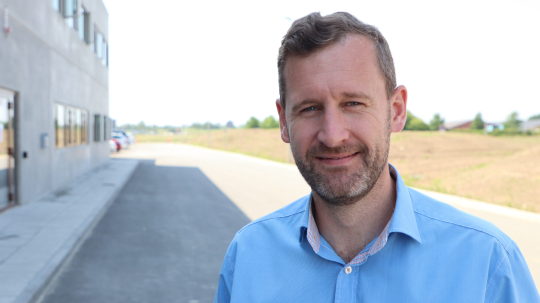
View On WordPress
0 notes